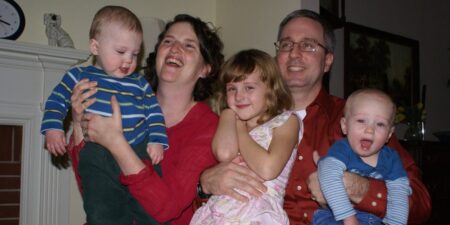- Layoffs, ballooning student loan debt, and concerns about AI have left Gen Z feeling anxious.
- More than half of college seniors feel pessimistic about joining the workforce, per a Handshake survey.
- First-time job seekers told BI they’re seeking stability in their careers.
Amid a dwindling pool of entry-level positions and ongoing layoffs in once seemingly foolproof fields, Gen Z college grads are feeling uneasy about starting their professional lives.
Competition for low-level positions has risen sharply in recent years as “entry-level” roles increasingly require years of experience amid a surplus of older, more experienced workers. Business Insider’s Aki Ito deemed the current career climate a white-collar recession earlier this year.
Hiba Rizvi, a senior at Loyola University Chicago, is set to graduate in May and has already started looking for software engineering roles. The 21-year-old told BI that she is regularly casing career fairs and updating her portfolio with new projects to stand out come spring.
Rizvi was initially interested in working in Big Tech and spent last summer applying to internships at popular companies. But after watching waves of layoffs strike the industry in recent months, she said she’s broadening her horizons.
“For the past year and a half, everyone has said the market is going to get better, and that was something I was looking forward to,” Rizvi said. “But now so close to graduation, I think we have to not expect the best from the future and just figure out our own game plan.”
More than half of the current college class of 2025 say they feel pessimistic about their looming entry into the workforce, according to an August report from Handshake, a leading early career services company that partners with more than 1,500 universities.
The organization surveyed 1,925 graduating seniors this summer and found that 57% said they are anticipating immediate challenges as they attempt to begin their professional lives — an increase from the 49% of seniors who said the same last year.
“While they are long-term positive about their careers, they’re short-term pessimistic,” said Christine Cruzvergara, chief education officer at Handshake. “And if we’re being honest, they’re largely justified.”
Job creations on Handshake in 2024 have thus far trailed 2023 numbers, a pattern consistent with national trends, Cruzvergara said. Meanwhile, the number of people applying to the shrinking number of roles on the site has increased.
The class of 2024 submitted 64% more applications per job on Handshake than the class of 2023, and the class of 2025 is already on pace to exceed them, according to Cruzvergara.
In the first six months of 2024, only 13% of entry-level job seekers successfully landed a gig, The Washington Post reported in June, citing a Goldman Sachs analysis of Commerce Department data.
Mounting economic fears, growing political unrest, ballooning student loan debt, and concerns about the future of AI have left Gen Z graduates in a state of deep anxiety as they prepare to enter the workforce. The survey found that the class of 2025 sees stability as their number one priority in choosing a job.
“They’ve lived through a lot of instability over the last eight years,” she said. “They’re ready for some level of stability.”
But landing a stable job can sometimes be easier said than done for graduates fresh out of school.
Sasha Friese, a 2023 University of Washington graduate, estimated she applied to more than 200 jobs before landing her current gig as a lab tech in San Diego.
The 23-year-old bioengineering major told BI she came to recognize three different types of jobs in her search: higher-paying technical jobs that required monotonous repetition, lower-paying lab roles with work that interested her, or contracted gig work with no benefits but promises of a possible full-time role in the future.
Friese ultimately accepted a job in the second category, working at a University of San Diego research lab. She told BI she likes her work but wishes she made more than her $40,000 salary.
“I applied to this job when I was in the headspace of applying to absolutely anything that was even remotely related to what I want to do,” Friese said. “I was desperate for a job.”
She’s applying to graduate school now, anticipating an advanced degree will open more career opportunities in her field. Once she finishes her master’s, she’ll be back on the hunt for a job.
“I’ve heard from so many other people about how bad the job market is,” Friese said. “So, I’m trying to tell myself that what I experienced in those five-to-six months of looking after graduation was contextual and not how it always is.”
Read the full article here
















